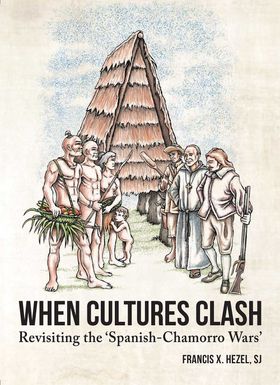When Cultures Clash: Revisiting the ‘Spanish-Chamorro Wars’
- Description:
- The arrival of Spanish missionaries to the Marianas in 1668 was a first in Pacific Island history; it signaled the beginning of intense Western presence in the islands. The troubled years that followed, marked by intermittent outbreaks of violence, came to be known as the “Spanish-Chamorro Wars.” According to the standard textbooks, this thirty-year period was one of utter devastation–forced conversion, rapid cultural change, precipitous population decline, and loss of Chamorro identity. Or was it? This book seeks to offer a better grounded and more nuanced understanding of this critical period of initial Western contact in the Pacific.
- Display date:
- 2015
- Location:
- Federated States of Micronesia
- Collections:
- Micronesian Seminar Publications
- Content partner:
- Micronesian Seminar
- Availability:
- Online
-
Copyright status: All rights reservedFind out more about what you are able to do with this itemThis item is all rights reserved, with means you'll have to get permission from Micronesian Seminar before using it. For more information, please see our use and reuse page.What can I do with this item?Non-infringing useNZ copyright law does not prevent every use of a copyright work, and this item may be hosted by an international institute or organisation. You should consider what you can and cannot do with a copyright work.No sharingYou may not copy and/or share this item with others without further permission. This includes posting it on your blog, using it in a presentation, or any other public use.No modifyingYou are not allowed to adapt or remix this item into any other works.No commercial useYou may not use this item commercially.
Related items
Welcome and warm Pasifik greetings
The information on this site has been gathered from our content partners.
The names, terms, and labels that we present on the site may contain images or voices of deceased persons and may also reflect the bias, norms, and perspective of the period of time in which they were created. We accept that these may not be appropriate today.
If you have any concerns or questions about an item, please contact us.
